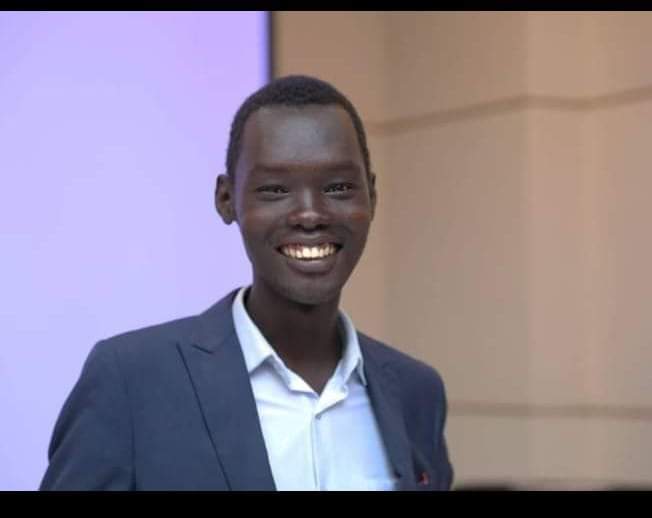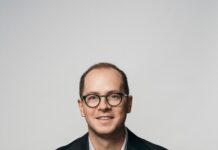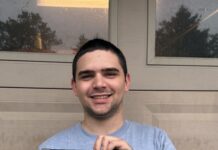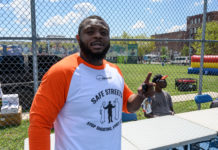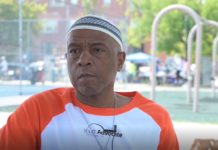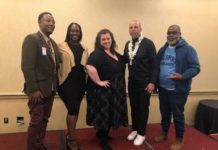By Jacob Ngor Khot Garang
Guest Writer
As a young man growing up in Africa, I never thought that one day I would have a chance or an opportunity to visit one of the world’s most powerful nations, the United States. I am sharing my personal experience with traveling to America for the first time to participate in the Community Engagement Exchange program which provides emerging international leaders a unique opportunity a fellowship through organizations such as Youth Advocate Programs (YAP), Inc., a national nonprofit offering community-based youth justice, child welfare, and neighborhood violence prevention alternatives.
When I left South Sudan for the U.S. earlier this year, I knew that I would have the chance to learn many new things. I also knew I was leaving a place that taught me resilience and provided me with a strong work ethic, but I was not naive to the fact that my native country has shown me at a very young age about the darkest part of humanity which includes killings and hatred. A civil war in Sudan between two rival armed entities has caused many people to be killed, hurt, or flee the country.
My trip to the U.S. started on a flight from Juba International Airport in South Sudan through the Addis Ababa Bole International Airport in Ethiopia with a layover in Paris, France, then to Detroit, Mich., and to my final destination of Austin, Texas where I am working to learn more about YAP’s trauma-informed behavioral health programs. Stepping foot on my first flight left me with a feeling of both joy and sadness. I was happy because I was traveling to engage in the CEE program and work with YAP. On the other hand, I was saddened while making the trip because many people on the plane from South Sudan were traveling to Cairo, Egypt in search of better medical attention from their ailments.
I arrived Ethiopia at 7 p.m. The airport was packed with travelers who were moving throughout the airport during its busiest peak hours. I had to wait for a connecting flight for a while and never knew how to change the little bucks we had into Ethiopian Birr currency so that we could buy some snacks. There was a Swiss man who was on the flight who had been in South Sudan since 2016 working with vulnerable children. He showed us a few pictures of the projects he has been spearheading and I was impressed. He was traveling to Switzerland to see his family. This man also bought me some food and water as I waited for my next flight. I have never seen that kind of love before; he was just being kind. We spent some time together in the airport and then parted ways. The next journey I was about to embark on was more fun and the longest leg of the pilgrimage. It was enjoyable because unlike the previous flight, all of those onboard were traveling for different reasons like going to see their families and others were on traveling on business.
I assumed that some of the passengers on the flight made a lot of money and were enjoying life. It was at that moment that I realized that my perspective would never be the same. I finally reached Detroit around 1 p.m. and the first thing that caught my attention after leaving the airport was all of the fancy cars. I have never seen such cars before. They were new and awesome. I was asking myself why they didn’t have old cars and the second thing I noticed was all of the snow. The snow was beautiful to me because it was my first time seeing it. However, because I wasn’t used to the snow, I found it hard to deal with. In South Sudan, it is hot throughout the year. How do people cope with snow?
My first week in the U.S. was a struggle. The food wasn’t that good because everything was new to me. I believe that our food system in South Sudan is good compared to American cuisine because we eat organic food, straight from the farm. The difference in food between the U.S. and South Sudan is that we don’t have enough food. Although we have fertile soil, we cannot grow our own food because of insecurity.
I always thought of America as a perfect nation and indeed it is because the people here are really great. But I also learned about the homeless; those who I assume feel invisible to the outside world. I thought everyone was working and making money in the U.S., but I was wrong. Money doesn’t grow on trees here and if you lose your job, you may end up on the street. I also learned about school shootings done by school children and that broke my heart. I can’t believe kids have access to guns and I was told that it is not illegal to own a gun, but it is a crime if you use that gun to kill. I was shocked to learn all of this and wondered why would anyone need a gun in the first place.
America has taught me some things that I never knew when I was in South Sudan. Those things include gratitude and time management. We have time back home and really don’t know what to do with it. In this country, time is a resource and you must make good use of it. Everyone here is appreciative and people always wear smiles on their faces, something I have missed for years since the war in South Sudan started. It’s nice to see Americans saying thank you and speaking so friendly to one another, which is the opposite of what I have witnessed in South Sudan recently.
In my country, and in my opinion, people are always sad and this also forces you to be sad even when you have some reasons to be happy. This is because of the long protracted wars in my country. In South Sudan, if you have five reasons to be happy, you will have 20 more reasons to be sad. To be continued. Part 2 will be published in April.
Participants in the CEE Program conducting civil society practicum are working alongside YAP staff members in Austin, Houston, Chicago, and Philadelphia. For 12 weeks, the international fellows will learn firsthand knowledge and experience as part of their assignment to collaborate with YAP on civil society initiatives and prepare to undertake community engagement projects in their home countries. The CEE Program is sponsored by the U.S. Department of State with funding provided by the U.S. Government and supported in its implementation by IREX.
A national nonprofit in 35 states and Washington, D.C., YAP is the leading nonprofit provider of services that reduce the overreliance on youth incarceration, residential care, and group home foster placements. YAP is in its 50th year of implementing its unique YAPWrap™ individual and family wraparound services model to transform public systems to become more effective and equitable. The nonprofit also has international partnerships in Australia, Guatemala, Ireland, and Sierra Leone.
About the Author: Jacob Ngor Khot Garang (He/Him) is a South Sudanese human rights activist, writer and a U.S State Department 2024 CEE fellow currently interning with Youth Advocate Programs (YAP), Inc. in Austin, Texas

